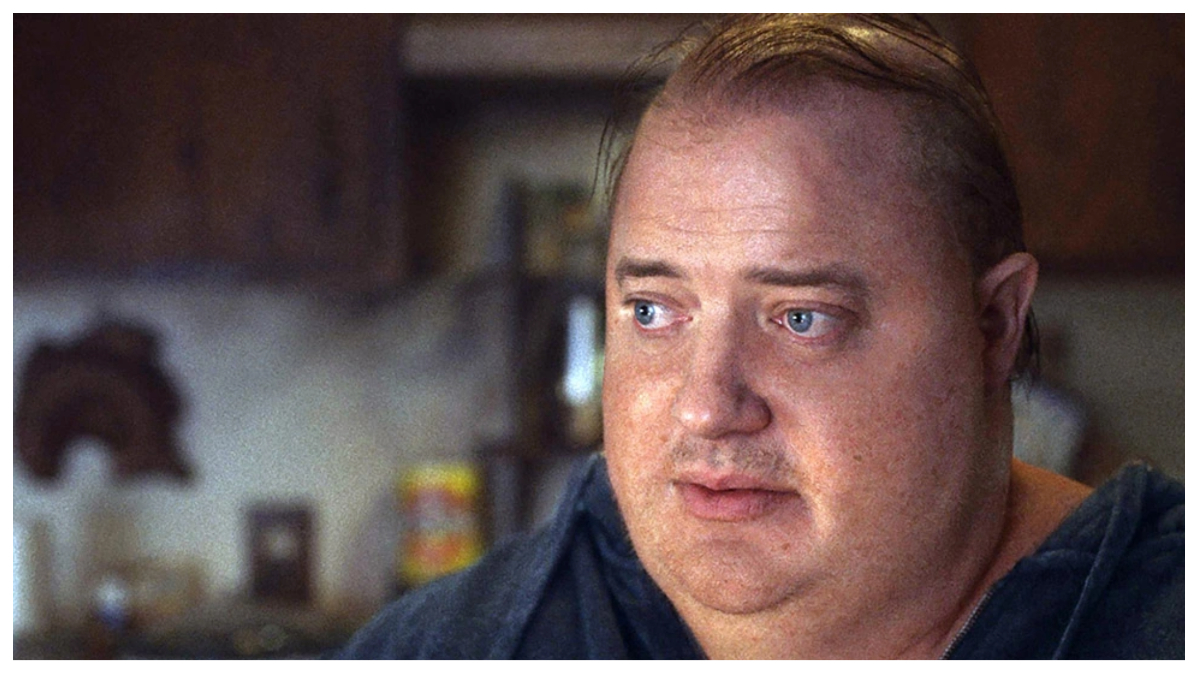It’s not the most original story, but it’s originally told.
Even director Darren Aronofsky, who wowed with visual behemoths like the heroin-injected Requiem for a Dream (2000) and the time-manipulating The Fountain (2006), had prior experience telling the story of a dying man seeking to make amends with the daughter he abandoned.
In 2008’s critical darling The Wrestler, Mickey Rourke transformed his way back into the cultural conservation under Aronofsky’s direction of this classic template. This year, another past-his-prime A-Lister in Brendan Fraser has re-emerged thanks to an Aronofsky collaboration, with an Oscar nomination for leading performance sure to be in his forecast as well.
His character Charlie in The Whale, based on Samuel D. Hunter’s play of the same name, is reduced to recluse status within small-quartered confines. He is terminally obese, having turned to overeating as a means to grieve the loss of his male partner he controversially left his wife (Samantha Morton) and daughter (Sadie Sink) for a decade earlier.
With insurance-cautious stubbornness keeping him from accepting hospital admission per his friend and nurse’s (Hong Chau) insistence, Charlie finds requiem through transactionally assisting his rebel with an ax to grind 17-year-old kin, Ellie. She is self-admittedly smart but disinterested in classroom reading material, but nevertheless has inherited a gift for literature analysis from her father. So much so that Charlie is compelled to offer Ellie her full, $120,000 trust fund in exchange for spending his suspected final days writing not for class, but “for him.” A Moby Dick critique that Charlie relies on like an inhaler serve as a much-welcomed Greek chorus in a film that’s black-and-bruised feet always form bridges over troubled water despite all fatal caveats abound.
Despite a harsh introduction as the online professor who feigns a faulty camera to mask his shame, the father who couldn’t hack it, and his overall lack of respect for his own well-being, Charlie beams off the screen. He is the King of his lonesome domain as crafted by Aronofsky. He and Fraser don’t beg you for pity, rather, they dare you to turn away from a cautionary tale you damn well connect with to a certain extent, especially upon post-COVID quarantine reflection.
Charlie is self-imprisonment incarnate, reaching the point of no return because loathing the man in the mirror he is responsible for also buried the man audiences have no problem finding lovable despite his worst downfalls. Under-marketed too is Ellie’s unconventional scheme-running of her own, mentally undressing a door-by-door Bible-totter keen on “saving” who can’t, and does not want, to be saved (Charlie) until she ends up saving him instead.
“People are amazing,” Fraser belches through tear-shed, despite believing his own ship has sailed. Let this lasting sentiment triumph over the Internet frenzy crying foul at the carefully crafted prosthetic suit and CGI effects required to authentically convey a man of Charlie’s build without making him the butt of a one-note joke seen in mainstream Hollywood comedies of yesteryear.
For his singular performance, Fraser in many ways borrows from his experience being “blacklisted” from starring in major box-office fare after he accused the former Hollywood Foreign Press Association president of groping him at a luncheon event in 2003. Like Charlie, Fraser found redemption through coming out the other side appreciative of the warm reception his return has garnered, rather than remaining in exile due to not being as quote-unquote marquee movie star desirable as he once was before the Berk incident toiled with his charisma and psyche.
What The Whale teaches us is that we’re oftentimes our own worst enemies. It posits that spiritual salvation can be found devoid of religion when we stop beating our enemies to the gut-punch and instead acknowledge the people who lift us up while they’re in the act of doing so, even after all the pain we’ve caused them.
Think Birdman’s Michael Keaton and Emma Stone father-daughter relationship as a textual comparison for how this film culminates. The Whale is a beautiful, not as word-of-mouth weepy sendoff to the happy places we’re told to go to when clocks start to run out.
Go there before it’s too late.






